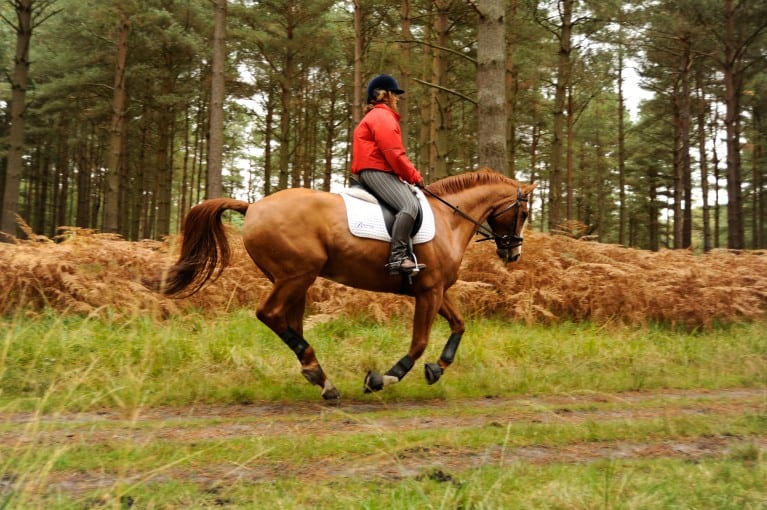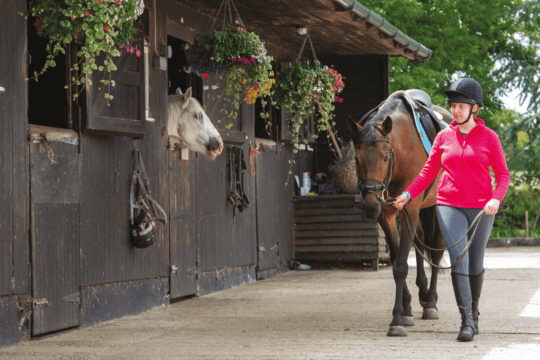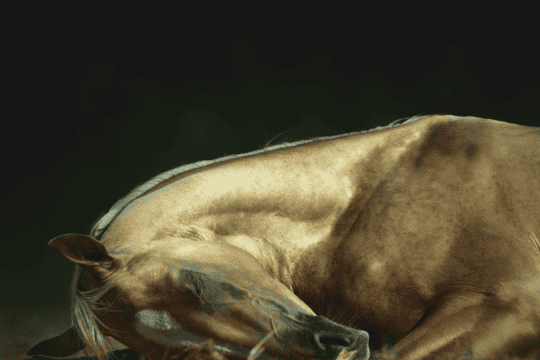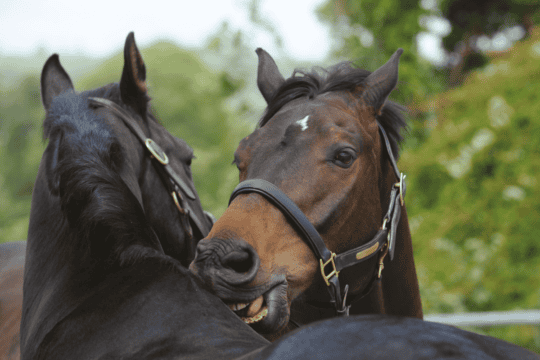My horse sweats heavily and is also prone to asthma, so bedding is an issue, what can I do?
Posted in Management
Q: When hacking out my mare, she gets very sweaty. If I clip her, I’d have to stable her and as she has asthma I don’t want her exposed to indoor dust. How can I manage her?

Deidre Carson answers:
Animals and humans sweat to help get rid of excessive body heat. The idea is that as the body heats up, sweat is produced and the excessive body heat is used to evaporate the sweat (a bit like using a gas flame to boil a saucepan of water).
In animals with thick coats, this process is hampered to a certain extent, which means that the animal gets hotter faster (imagine running in a woolly jumper), more sweat is produced over a greater area of the body and it takes longer to evaporate. Once the exercise (or whatever has caused the sweating) has ceased, the body can cool down gradually. If the horse has a very long coat, this will retain moisture and, if there is a cold wind, the animal may cool too far and get cold.
No sweat
There is no way to avoid your mare sweating unless you stop exercising her, which would be a pity. The advantages in clipping are that the animal can sweat, the sweat can evaporate and the skin dry readily. The disadvantage is that the horse has to be well-rugged and/or stabled.
One common sign of metabolic syndrome (or ‘Cushing’s’ in horses) is a very long coat, even in the warmer months. Many of these animals sweat excessively. If you think your mare might be excessively hairy, is drinking a huge amount of water or tends to get laminitis, it might be worth asking your vet to investigate the possibility that she has this condition.
Other reasons horses sweat include pain or excitement. However, I would imagine that you know your mare well enough to decide if these might be the cause.
Done and dusted
You have a dilemma in that your mare has an allergic respiratory condition, which makes it hard to keep her stabled. Try dust-free management, but you must be vigilant about every aspect of her care. She must be on dust-free bedding, and this must be kept scrupulously clean to avoid multiplication of mould or fungal organisms.
Dampen her hay or feed haylage, and always feed from the floor. Her hard feed should also be fed damp, and these conditions must apply to all animals with whom she might share air space. There is no point in altering her ‘personal’ conditions, if she can breathe in hay and dust spores from the horse on straw next door.
If you can manage this dust-free care, I also suggest that you clip your mare to make her more comfortable and easier to care for.















